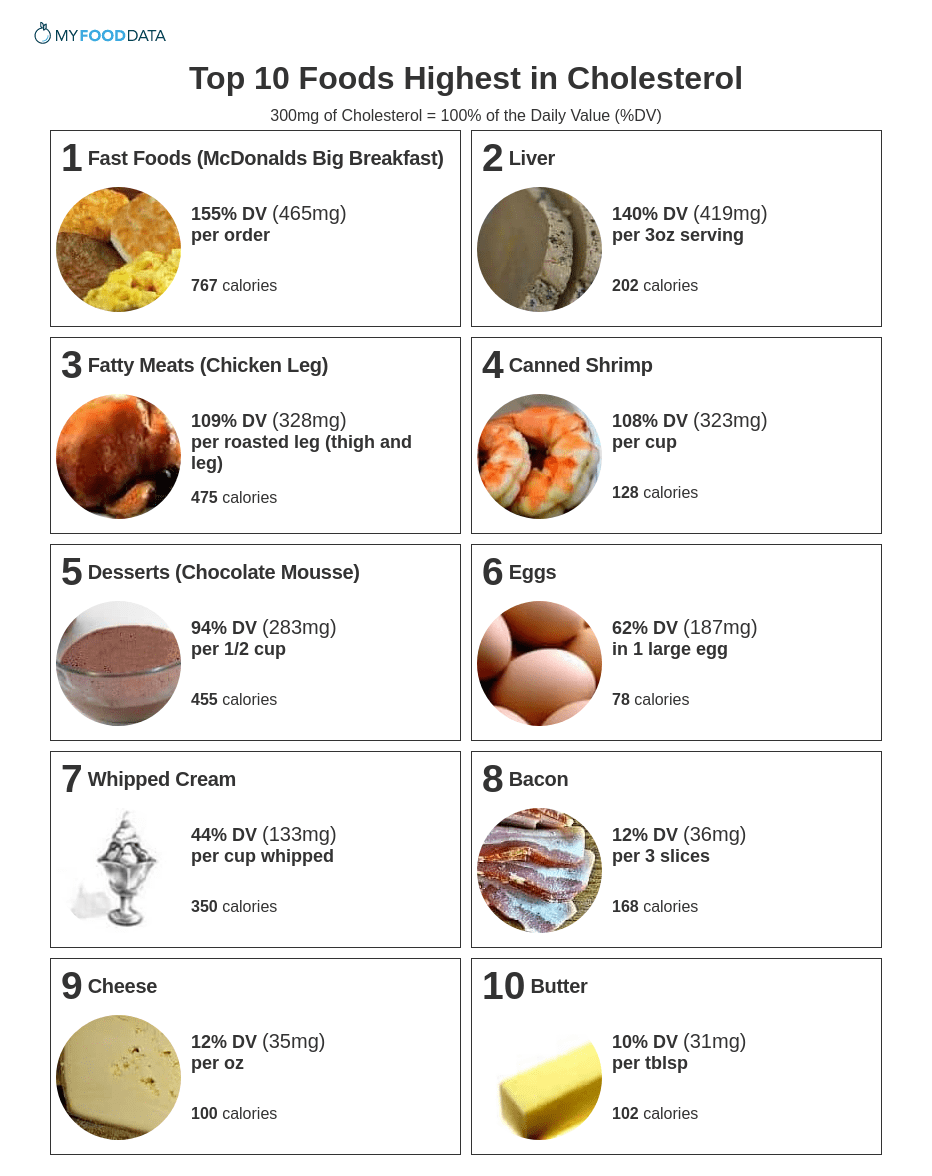Many people believe that high cholesterol is just a natural part of aging, but the truth is that a poor diet can lead to high cholesterol at any age. If you want to improve your cholesterol levels, the best thing you can do is follow a low cholesterol diet. This means avoiding certain foods while eating more of others. Today, we’ll be sharing some helpful tips and a few tasty recipes to get you started.
What is Cholesterol?
Before we dive into the diet, let’s first take a look at what cholesterol is and why it’s important to maintain healthy levels. Cholesterol is a waxy substance that your body uses to make hormones, Vitamin D, and substances that help you digest food. Sounds pretty important, right?
But here’s the thing: your liver actually produces all the cholesterol your body needs. That means any additional cholesterol you get from your diet can build up in your arteries and cause a whole host of problems.
The Link Between Diet and Cholesterol
If you consume too much cholesterol and saturated fat (found in animal products like meat and dairy), your liver won’t be able to keep up and your cholesterol levels will rise. The good news is that you can control your cholesterol levels to some extent by eating foods that are low in cholesterol and saturated fat (and high in fiber).
Of course, this is easier said than done. After all, many of the foods we love are high in saturated fat! But don’t worry, we’re here to help. Let’s take a look at some of the best foods to eat on a low cholesterol diet.
Foods to Eat on a Low Cholesterol Diet
First, let’s talk about plant-based foods. These are a great place to start because they’re naturally low in cholesterol (and often high in fiber). Aim to eat plenty of:
- Fruits like apples, bananas, and oranges
- Vegetables like broccoli, carrots, and spinach
- Legumes like lentils, chickpeas, and black beans
- Whole grains like brown rice, quinoa, and whole wheat bread/pasta
These foods are not only good for your cholesterol levels, but they’re also packed with important vitamins and minerals that your body needs to function properly. And don’t worry about getting enough protein – plant-based foods are a great source of protein too!
But what about animal products? If you’re not ready to give up meat and dairy completely, that’s okay. Just be mindful of the types you’re consuming. Here are a few tips:
- Choose lean cuts of meat (like chicken breast or sirloin steak) and remove any visible fat before cooking.
- Use low-fat dairy products (like skim milk or reduced-fat cheese) in place of full-fat versions.
- Eat fish a few times a week – fatty fish like salmon and tuna are rich in omega-3 fatty acids, which can actually help improve cholesterol levels.
By making these simple swaps and incorporating more plant-based foods into your diet, you’ll be well on your way to a low cholesterol lifestyle.
Recipes to Try
Now that you know what types of foods to eat, let’s look at some tasty recipes that fit the bill. These are easy to make and packed with flavor – perfect for busy weeknights!
Baked Salmon with Avocado Salsa
 This recipe is a great way to get in some heart-healthy omega-3s! The avocado salsa is a refreshing and delicious topping for the salmon. Serve with a side of roasted vegetables or a salad.
This recipe is a great way to get in some heart-healthy omega-3s! The avocado salsa is a refreshing and delicious topping for the salmon. Serve with a side of roasted vegetables or a salad.
Whole Wheat Pasta with Broccoli and Garlic
 This pasta dish is both flavorful and easy to make. The whole wheat pasta adds some extra fiber and nutrients, while the broccoli provides a healthy dose of vitamin C. Top with some parmesan cheese (in moderation!) for added flavor.
This pasta dish is both flavorful and easy to make. The whole wheat pasta adds some extra fiber and nutrients, while the broccoli provides a healthy dose of vitamin C. Top with some parmesan cheese (in moderation!) for added flavor.
Banana Berry Smoothie Bowl
 Who says a low cholesterol diet can’t be delicious? This smoothie bowl is packed with fiber, antioxidants, and flavor. Top with some granola and sliced fruit for added texture.
Who says a low cholesterol diet can’t be delicious? This smoothie bowl is packed with fiber, antioxidants, and flavor. Top with some granola and sliced fruit for added texture.
Grilled Chicken with Sweet Potato Fries
 This meal is a classic for a reason – and it can be made low cholesterol too! Opt for skinless chicken breasts and sweet potato fries (instead of regular fries) for a healthier version of this comfort food favorite.
This meal is a classic for a reason – and it can be made low cholesterol too! Opt for skinless chicken breasts and sweet potato fries (instead of regular fries) for a healthier version of this comfort food favorite.
Final Thoughts
At the end of the day, maintaining healthy cholesterol levels is important for overall heart health. By following a low cholesterol diet, you can make positive changes to your diet that will benefit your body for years to come. Remember to incorporate plenty of plant-based foods, choose lean cuts of meat and low-fat dairy products, and stay away from foods high in saturated fat. And don’t forget to try out some of our delicious recipes!